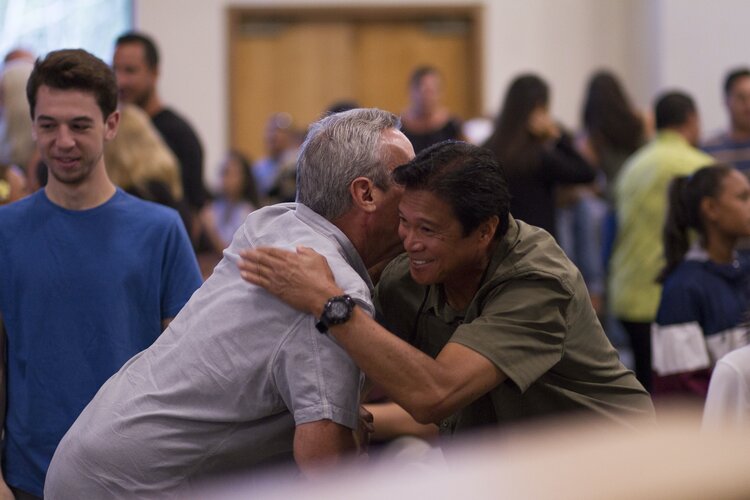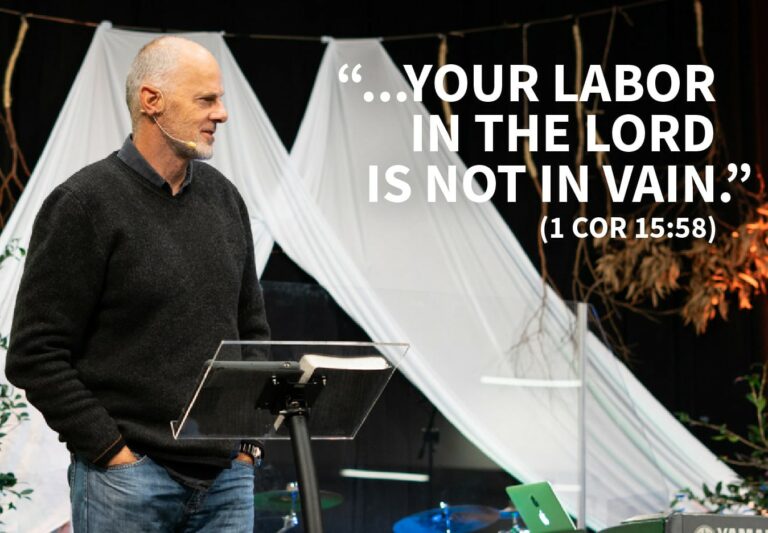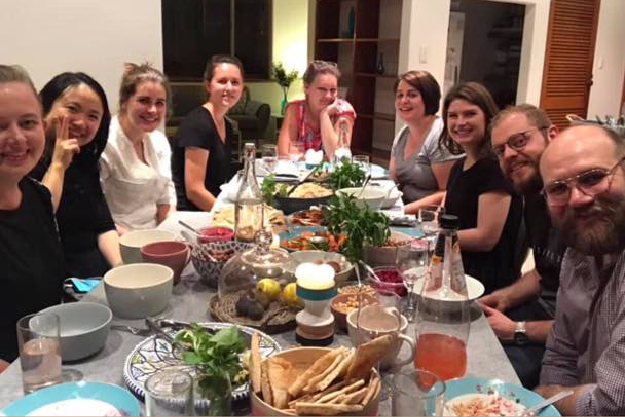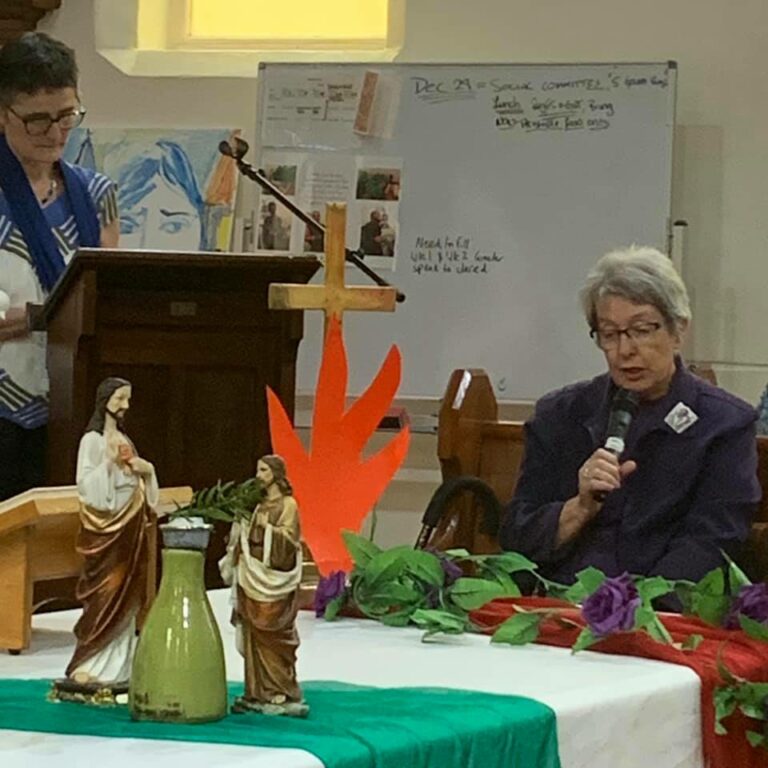Here’s an excerpt from our interview with C3 People, Merewether, whose leaders Ryan and Erika Croxford and their team, build their health and vitality through initiatives such as this.
Read the conversation below.
NCLS: Would you say there are particular actions that your church has taken that have contributed to your health and vibrancy? Something like a program or an initiative or an activity or event? And how did that help?
RC: No. It’s not event-based but it’s very much that model of sowing into those that can carry others in that way, but also sharing the caring.
Typically, the pastor in churches is the person that people run to for their needs to be met, but I hardly ever get a call for a pastoral meeting because we have taught our church that we care for one another. It’s not the responsibility of one person. It’s the responsibility of all of us to look out for our neighbour, for our friends, and to be invested in their life.
So I would say that we have a very low maintenance church in that way, because people look out for one another and don’t see it as only the pastor’s role.
NCLS: So you have the pastoral team, but also an emphasis, that it’s part of the culture, that you motivate everyone, you equip everyone, and they’re actually able to share the caring?
RC: Yes. And that’s taken years to do, but it’s even explaining to your own pastors that if you know someone’s in need, your first response shouldn’t be, I’m going to go to them, but, who’s their friend, so that their friend’s helping them. And so they learn to do that, so that the first call when somebody’s sick or in need isn’t, hey pastor, someone’s sick. You need to go help them. It’s, I’m going to come help you.
NCLS: I’ve heard people describe their goal that if they weren’t in the picture, then the team would carry on as normal. It’s that you’re not crucial in everything. So, the dependency is not there and you’re actually equipping your team and empowering them to do it.
RC: Yes. We went away, and we do every year for six weeks in Canada doing ministry, and the church didn’t skip a beat, and that was after some very, very difficult events that happened in our church. But it’s not reliant on us, I wouldn’t say.
NCLS: And that was part of your intentional leadership style, would you say?
RC: Absolutely.
And I’ve got this slogan in my head, their profit is my gain. If I help others win and fulfil their purpose, not just in ministry, but for their life, then they’ll be happy and then I win.
The difficulty with that and the challenge with this, even when I’ve trained other pastors, is that you’re not going to be adored like some other pastors are. You’re not going to be as honoured, so to speak, in the way that others are. Because when you can emulate yourself and raise yourself up to be everyone’s solution, and you will become that and people will see you as this saviour type person, but at the end of the day, you’re not actually helping them.
NCLS: It seems that movements as a whole undergo change processes as well as local churches. Having seen things through the 80’s and 90’s and so on, it sounds like there used to be a bit of a hero leadership where the leader was the hero and there was one leader. And now what you’re describing is a shift to everyone exercising leadership and sharing that ministry, and so there’s not that sense that you’ll be held up as the hero, but rather you’re the one that’s empowering it.
RC: Yes. That’s something that has happened to us in the way society has changed like that as well. I notice that with our older pastors. Some Baby Boomers really struggle with that because, in the 90’s, you could build a church around your personality and upon your gift, but you can’t do that anymore. So if you’re still trying to cling to that, you end up just feeling quite depressed and dishonoured.
NCLS: On an aside, some of the church stories I’m hearing involve picking up the pieces after things go wrong in a church and some of those problems can actually be from that hero legacy, if you like, that one person wasn’t held accountable for certain decisions. That different model of leadership. Are you saying, things in society are changing and people are more collaborative and holding each other accountable?
RC: 100%, yes. It’s been a great observation, even in C3, for pastors that have floundered. Unfortunately, some of them were of that nature, and that will get you in the end. It really will. It will hurt a lot of people. It has hurt a lot of people.
NCLS: It’s really fascinating to look at the generational changes as well, to see Gen Y or Gen X doing things a certain way that’s different to the Boomers, but it sounds like you’re having that leadership style across the movement now? Across all ages?
RC: I would say that C3 is fairly good at that, but it’s still a struggle because we’re all individuals that want to feel like we’re being successful, that we’re doing something where people do see the work and the labour that we do and so on. So you really have to work hard on yourself and your own identity because it does. It gets hard on days where you don’t seem to be needed, and so that’s difficult. And I would say this is a predominantly in Australia.
In our churches in North America, it’s very different. That mindset is still looking for a hero leader. That model still works quite well, but then, as we observe the United States and we go, well, that works, we can try to emulate that, and it doesn’t work. Again, it’s not a scalable model.
NCLS: Thank you. So if we go back to some of the actions you took, in being quite intentional in sharing the caring, and sowing into people, what lead or motivated your church to take those actions and were there any key moments or situations that influenced that?
RC: It goes back to that story I told you before, of unsustainable reliance on the pastor if they do all the caring, but, yes, it was that realisation that, for it to be scalable. Again, Jesus did that model. He just predominantly sowed into 12, and I think he had that in as a principle, that if you all do the same things, if each of you go and develop 12 others, then it’ll create a large, more effective system.
And that’s what Paul did, didn’t he? He did the same thing. He’d just go and raise leaders everywhere. And so I really believe in that model very much, but you have to do it very intentionally.
So we have very few meetings as a leadership team. We have a once a month pastors and leaders and pastoral care meeting. We have one staff meeting that goes for an hour every week. That’s it. But then we have some very clear systems in place and communication models so that that can happen.
When we have our pastors meeting, I ask them. Who’s new in the last month? Who’s joined the church? Who’s disconnected and departed? Who’s got saved and where is there a question mark? And so they update that every month and tell me. It’s all recorded on a Dropbox Paper document.
So it forces them to actually look at that, so they’re aware of what’s going on in their portion of the flock and they’ve taken responsibility for that, but it’s almost done in a way that is stealth. Because, again, they’re managing it and they’re looking at it.












